It is inhuman to continue a war which could easily be ended
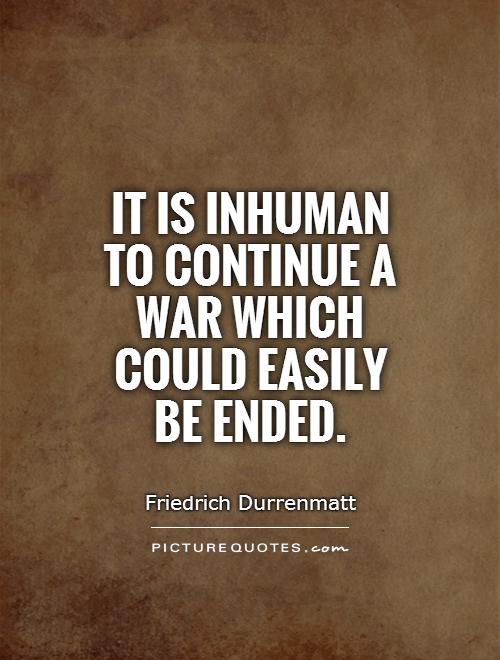
It is inhuman to continue a war which could easily be ended
Friedrich Durrenmatt, a Swiss playwright and novelist, was known for his thought-provoking works that often explored themes of justice, morality, and the human condition. In his play "The Visit," Durrenmatt delves into the idea that it is inhuman to continue a war that could easily be ended. This sentiment is echoed throughout his body of work, as he often questioned the senselessness of violence and the destructive nature of conflict.In "The Visit," the protagonist, Claire Zachanassian, returns to her hometown after many years with a proposition for the townspeople. She offers them a vast sum of money in exchange for the life of Alfred Ill, a man who wronged her in the past. As the townspeople grapple with the moral dilemma of whether to sacrifice one man for the greater good of the community, Durrenmatt forces the audience to confront the consequences of their actions and the inhumanity of perpetuating a cycle of violence.
Durrenmatt's words serve as a stark reminder of the futility of war and the devastating impact it has on individuals and societies. He challenges his audience to consider the human cost of conflict and the ethical implications of continuing a war that could easily be resolved through diplomacy and compromise. By highlighting the senselessness of violence and the destructive nature of revenge, Durrenmatt urges us to strive for peace and reconciliation rather than perpetuating a cycle of hatred and destruction.

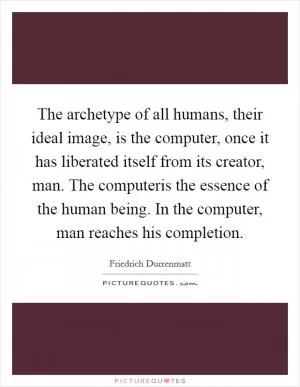




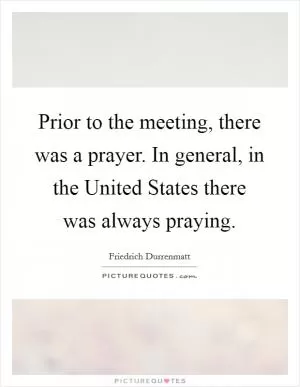
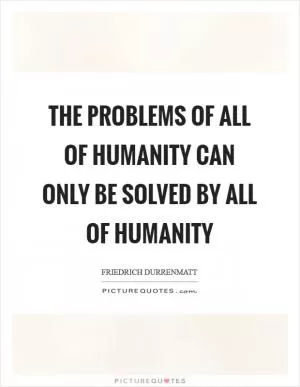
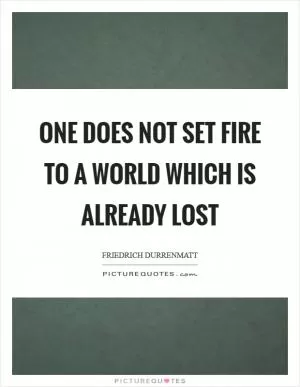



 Friendship Quotes
Friendship Quotes Love Quotes
Love Quotes Life Quotes
Life Quotes Funny Quotes
Funny Quotes Motivational Quotes
Motivational Quotes Inspirational Quotes
Inspirational Quotes